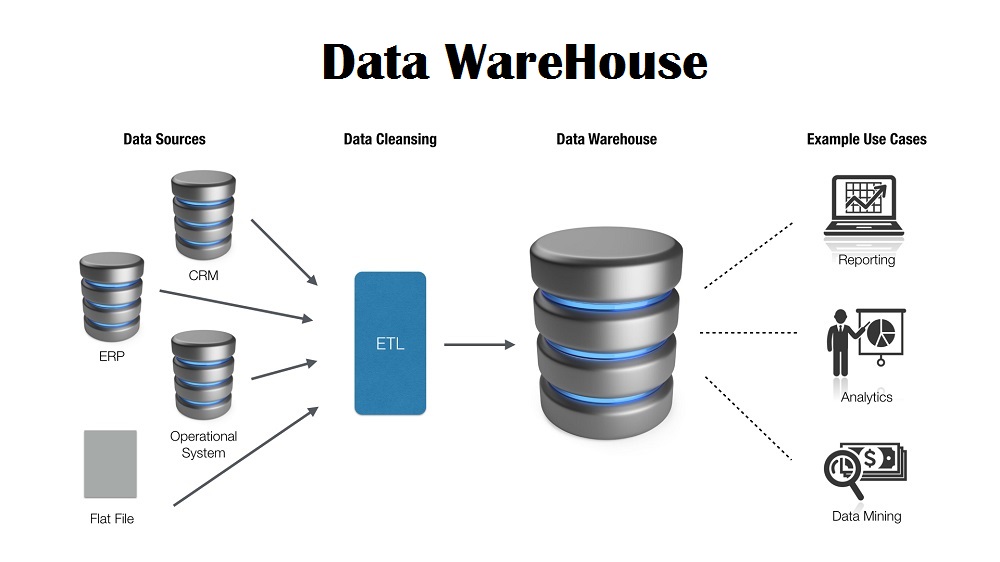Radikally Different - Our World View

Why is Data Warehousing Important?
The present times bear intense competition in the business world. In order to remain successfully maneuvered one must take timely decisions and avoid immediate challenges. Having a data warehouse is an important step to hold significant records of business operations/activities in one place. There can be multiple data sources which are important for future reference. Corporate decision making largely depends on huge volumes of data. Data warehouse is an intelligent business tool that takes care of data analysis, ad-hoc queries and report generation in large sized business organizations. Companies dealing with regular purchases, suppliers, contracts and invoices must include data warehousing in their business initiative in order to attain strategic value in business intelligence. Data warehouses deliver fast, accurate and easy access to data. They support strategic financial management, marketing segmentation, sales volume and inventory management.
What is a data warehouse?
A data warehouse known as DW or DWH is also known as enterprise data warehouse (EDW). DWS are mainly central repositories of structured data collected from multiple sources. Data is uploaded from existing operational systems like sales, ERP, marketing, etc. The operational data store performs several operations before integrated data is used in the DW for reporting.
There are several variants that work behind the mechanism of data warehouse, such as – time, subject, non-volatile and integrated. Here is a list of the variants:
Time
Data (current and old) is stored in a warehouse. People may retrieve old data by referring to time frames for data ranging from 3 months, 6 months or 12 months old. Having huge contrast with transactions systems (which are able to store most recent data) which can hold the most recent address of a client whereas a data warehouse will have all customer addresses stored in its system.
Subject
Subject fields can be analyzed by a data warehouse. Assessing the data structures available in the feeds, one can analyze a particular subject, like marketing or sales.
Non-volatile
Data structures will not change once they have been placed in a data warehouse. Historical data must never be tampered or altered.
Integrated
Data is accumulated and from multiple data sources. These accumulations are integrated into categories which become the part of the data structure that identifies each of its elements/products by their sources. There can be only one way of identifying products inside a data warehouse.
Software Functions
There are a set of software tools that bring together all accumulated data under one roof. ETL or extract-transform-load based warehouses apply access, staging and data integration layers to form their central functions.
Data is collected from scattered sources of data systems and stored in staging layer or staging databases. Then the integration layer formulates scattered data types by transforming them from the staging layer. This transformed data is stored inside operational data store (ODS) database.
There are numerous steps of data allocation taking place in the entire process of data warehousing. Integrated data is placed inside another database. Hierarchical groups (created on the basis of facts) are formed to arrange the integrated data. Access layer helps users to retrieve data.
Data warehouse greatly focuses on data storage where main sources of collected data is catalogued, cleaned and transformed in order to make them available for management purposes. Business owners, professionals and managers depend on this fine-tuned data to pursue in their efforts of online analytical processing, decision support, data mining and market research.
Other essential areas managed by a data warehousing system are – manage, extract, analyze, transform, retrieve and load data.
When we broadly define data warehousing we include it as a massive business intelligence utility.
Why use data Warehouse?
Providing quality customer service depends greatly on having all information on your fingertips. As a business owner you must be aware of your clients’ pulse. You must be able to answer the most simple and unimportant questions like how many acquisitions you had or difference of yearly sales figures.
Business operations, transactions, results, solutions and consolidations improve only when data is managed and received well. Some of the major advantages of data warehousing are:
- Equal distribution of data across the entire organization.
- Categories and well-integrated data structures help in fast decision making. Management success forms the base of overall success in business.
- Fact-based decisions help in improving marketing strategies which help bring changes in selling policies.
- High quality effective and standardized data brings together departments and puts consistency in business efforts.
- Businesses looking forward to have profit must implement a data warehouse in order to take sound business decisions.
Conclusion
Data warehousing provides trends, which can be analyzed to take decisions. Better information helps take better decisions which result in better revenues. If you need any help, just talk to us at www.radikal-labs.com/contact and let us tell you ways in which we can help you do better.
- Augmented Reality (4)
- Enterprise (9)
- Games (15)
- Marketing (17)
- Mobile App Development (26)
- Mobile Apps (19)
- Mobility Solutions (1)
- Monetization (8)
- News (16)
- Remote Hiring (1)
- Strategy (13)
- Testing (7)
- Uncategorized (1)
- User Experience (8)
- Virtual Reality (4)
- Web Browsing (1)
- Web Design & Development (20)
